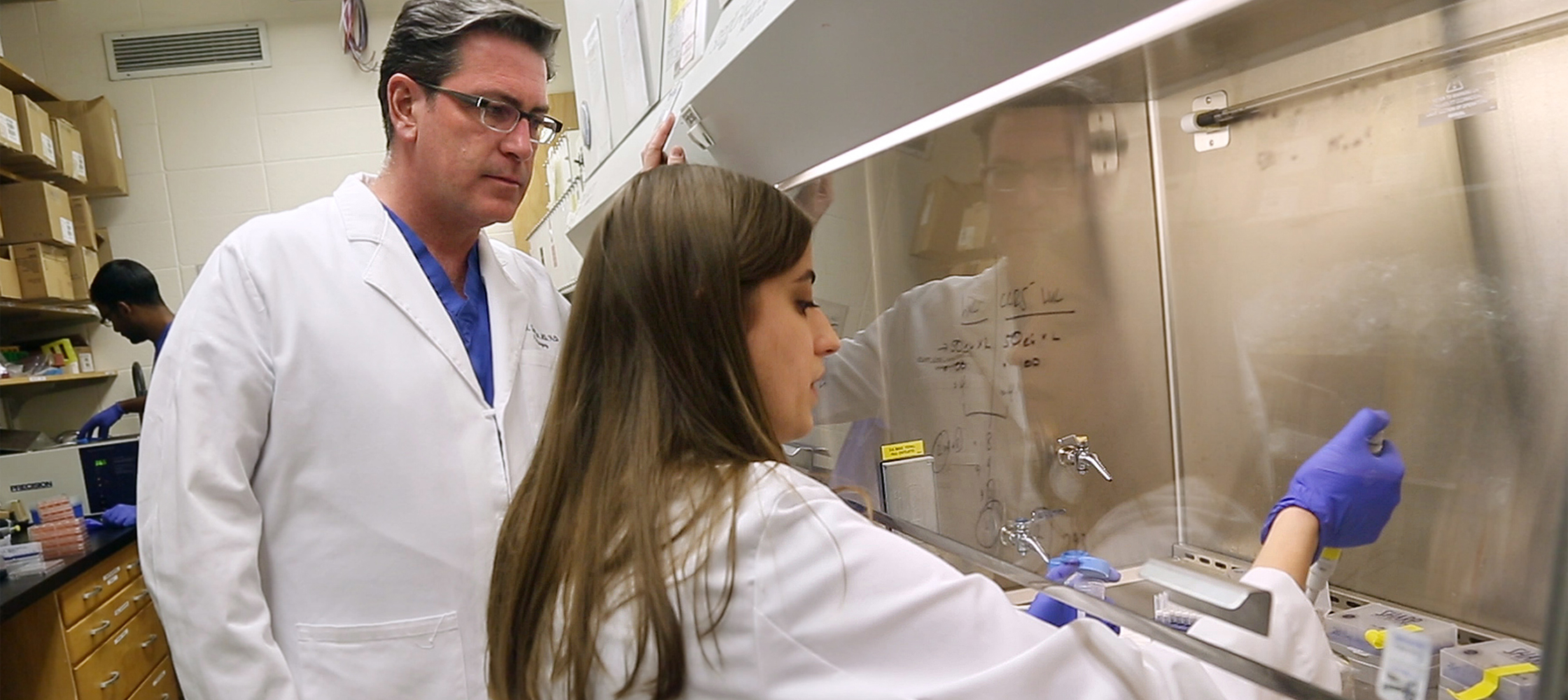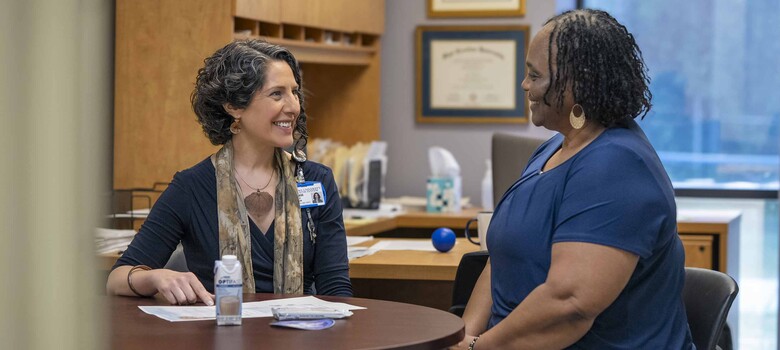 From the DukeHealth.org archives. Content may be out of date.
From the DukeHealth.org archives. Content may be out of date.
Tetanus Vaccine Helps Improve Survival in People with Glioblastoma

Sandy Hillburn enjoying time with her grandson, Colin Link.
Nine years ago, Sandy Hillburn was diagnosed with a brain tumor and told she had three months to live. Today, she walks up to four miles per day and enjoys monthly visits with her grandchildren. Hillburn is benefitting from an investigational therapy in which Duke doctors are using the tetanus vaccine to help people live longer with glioblastoma.
Internationally Recognized Glioblastoma Research, Treatment
Sandy Hillburn of Fort Lee, NJ had no idea what was wrong when she started feeling tired nine years ago. After several doctors couldn’t find the cause, Hillburn underwent a CT scan. At 59, she was diagnosed with glioblastoma, an aggressive, fast-growing brain tumor.
The prognosis for glioblastoma is grim. Even after surgery, glioblastomas often grow back. The few treatments available are mostly ineffective. Typical life expectancy for people with glioblastoma is about 15 months.
It didn’t take long for Hillburn’s family to discover the Preston Robert Tisch Brain Tumor Center at Duke, which is internationally recognized for its glioblastoma research and treatment. After neurosurgeon Allan Friedman, MD, removed her tumor, Hillburn underwent chemotherapy and radiation to kill any remaining tumor cells.
Tetanus Vaccine Puts Immune System on High Alert
Hillburn agreed to participate in research of a vaccine immunotherapy, which uses her body’s own immune system to keep the cancer at bay. Simply put, white blood cells are extracted from her blood each month, engineered to attack a chemical found in brain tumors, and injected back.
A tetanus booster was also used to prep her immune system for the arrival of the engineered blood cells. The tetanus vaccine “puts the immune system on high alert,” explained Kristen Batich, an MD/PhD candidate who worked with John Sampson, MD, chief of neurosurgery at Duke, on the research. The results of their research were published recently in Nature. (Read the Duke press release.)

In patients who received the immunotherapy, half lived nearly five years or longer from their diagnosis, so the findings are promising and significant.

Significant Increase in Survival
Twelve people participated in the research along with Hillburn. Patients randomized to get a tetanus shot showed a significant increase in survival, with half living from 51 to 101 months, compared to 11.6 months for the comparison group.
“Patients with glioblastoma usually survive for little more than one year,” said Dr. Sampson. “However, in patients who received the immunotherapy, half lived nearly five years or longer from their diagnosis, so the findings are promising and significant.”
No Sign of Brain Tumor
For the past nine years, Hillburn has been on the vaccine therapy. Each month, she travels to Duke for testing and to receive the immunotherapy. She continues to show no sign of the brain tumor growing back. She knows the vaccine therapy has been successful, but she says her attitude makes a difference too. It’s something she learned from her parents.
“My father had two different types of cancer in his life, and he’s 97 and going strong. We just go about our business.”
For Hillburn, that business is walking up to four miles a day, seeing friends, attending discussion groups, taking classes, visiting her six grandchildren, and going to Duke each month.
“It’s all good,” she says of her busy schedule.
Vaccine Therapy May Prove Useful in Other Aggressive Cancers
For the Duke researchers, the published study results are only the beginning. They plan to study vaccine therapy in larger studies, and look for ways to improve the way tumors respond, and the therapy’s impact on extending patient survival. They also hope this and other types of immunotherapy may prove useful in treating and prolonging life in other aggressive cancers.


